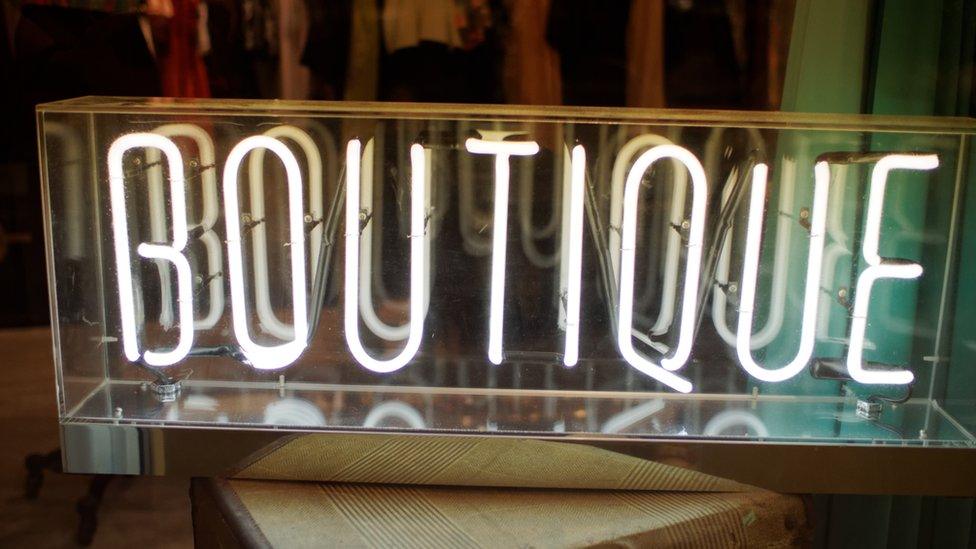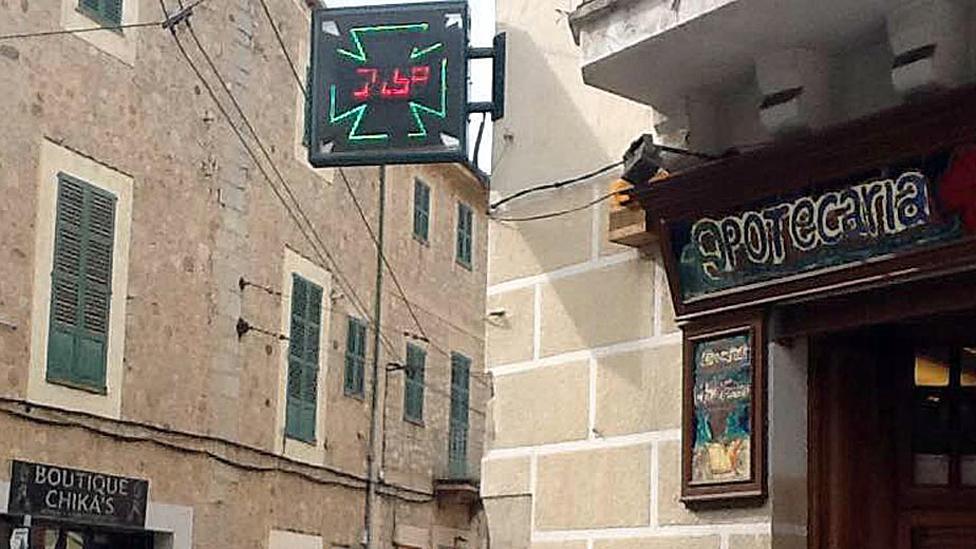The Vocabularist: How did the word 'boutique' become ubiquitous?
- Published

A little French shop, then any fancy shop - now boutique can mean anything small and fancy.
Not always so very small, either. This week a Chinese "boutique investment bank" brokered a $15bn deal.
But experts say the word goes back to the 5th Century BC.
The Greek word apotheke means a store - from apo "from" and theke "place for putting things". It was used by the historian Thucydides about 410BC.
In Latin it became apotheca - but from there it developed in two ways.
Sometimes a word's original form remains clear.
This happened with apotheca in the specialised sense of a store of medicines. In English apothecary meaning pharmacist was well established by the time of Chaucer in the late 14th Century.
But very common words are used over and over again by people who have little interest in their original forms, so these change and become hard to recognise. Unkind dictionaries call this process "corruption".
Reference books say this is how apotheca turned into boutique, but how and when is hard to pin down.
It very likely came through Italy - in 15th-century Naples potega meant a shop. But French already had the word botique by the late 14th Century.
Even earlier, in Douai in 1242 a tax was imposed on people keeping a hostal ou bouticle of ill repute.
But is "bouticle" from apotheke? There is a German word bude meaning a stall (English booth).

Words for chemists' shops abroad often come from "apotheca" - as, experts say, does "boutique".
In fact a word can have more than one origin! "Shamefaced" for instance was originally shame-fast meaning "firmly modest". But some people thought it ended in "faced" and that worked well. So could boutique derive from both bude and apotheke?
Britain, French revolutionaries jeered, is a country of shopkeepers ("nation boutiquiere") but boutique in English for many years usually meant a Parisian shop. In French it could mean quite a humble shop, but it was the fashionable ones Britons were most interested in hearing about.
Still, opening a "boutique" here to catch some of the fashionable allure of Paris started well before the 1950s.
In 1827 the Derby Mercury carried an advert from Mr Alfred Lewis for his "boutique" where the Nobility and Gentry could buy perfume, china, jewellery and fashion accessories "de la fabrique française".
But, warned Mr Lewis, his "Petit Palais Royal" would be opposite the town's post office for "14 Days Only".

The Vocabularist
Select topic "language" to follow the Vocabularist on the BBC News app

Subscribe to the BBC News Magazine's email newsletter, external to get articles sent to your inbox.